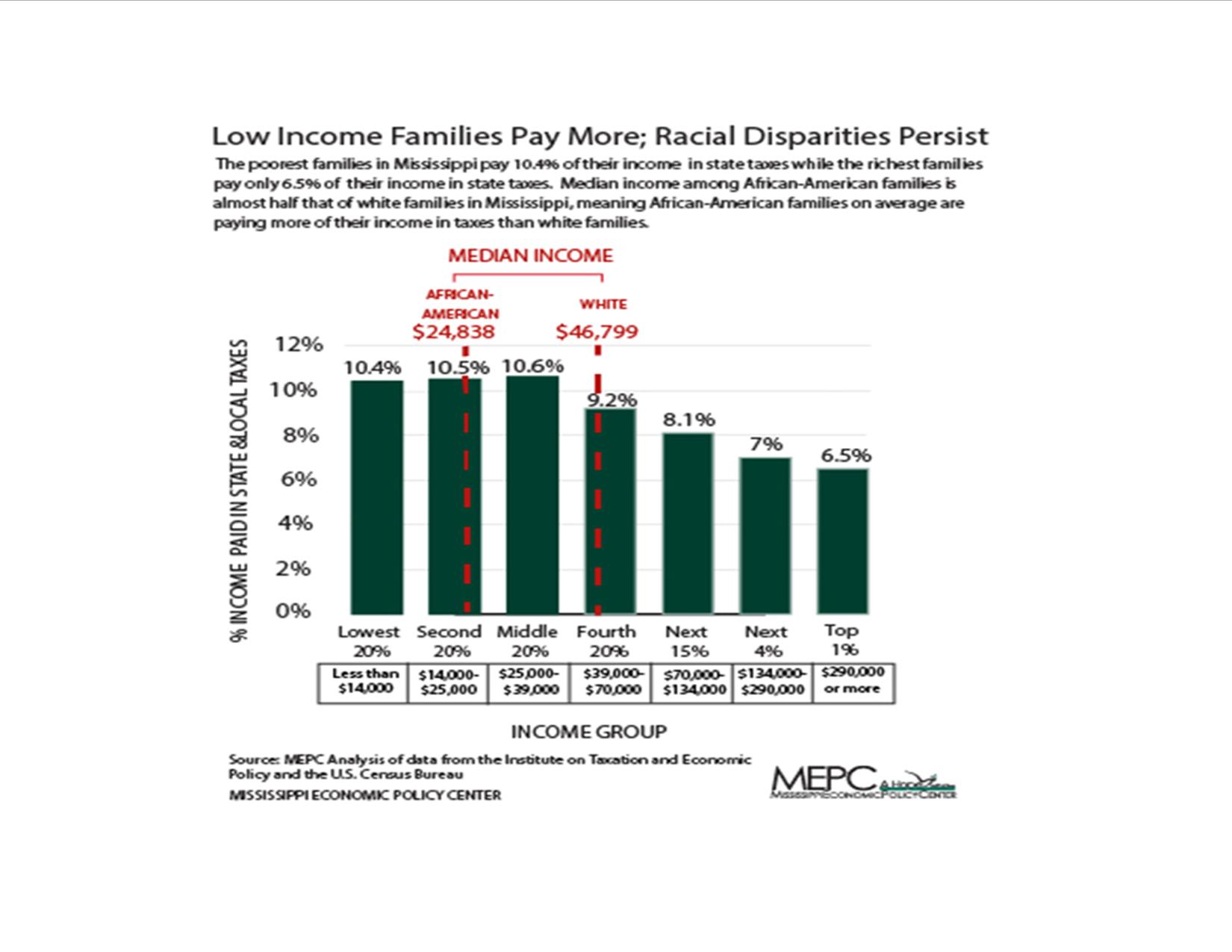Continuing our look at how Mississippi families are faring 50 years after the March on Washington, this time through the prism of state and local taxes, it’s clear that our tax laws are making income disparities between African American and white families worse.
Because of Mississippi’s heavy reliance on the sales tax and a basically flat income tax rate that ignores differences in how much families can afford to pay, middle class and lower- income families pay more of their income in taxes than those with higher incomes. The figure below shows the percent of income paid in state and local taxes by income group. Low- and middle-income Mississippians pay over 10% of their income in taxes, while the richest pay only 6.5%.
This inequity, combined with racial disparities in income, means that our tax system is more likely to place a greater burden on African American families. The median income of African Americans ($24,848) is almost half that of Mississippi’s white families ($46,799). Essentially, an African American household earning $24,838 – the income at which half of African Americans earn less and half earn more in Mississippi – would pay 10.5% of their income on state and local taxes. In contrast, a white family earning $46,799 – the income at which half of whites earn less and half of whites earn more in Mississippi – would pay 9.2% of their income on state and local taxes.
One way to address this disparity is to change the state’s income tax, so that higher income levels are taxed at higher rates. This will ensure that everyone is paying his or her fair share, and that we aren’t asking more of those who can least afford it. Another way is to exempt groceries from the state sales tax, reducing the burden of the sales tax on lower- income Mississippians. (However, this would require raising revenue in another area to prevent cuts to schools, health care and other services that are already strained.)







